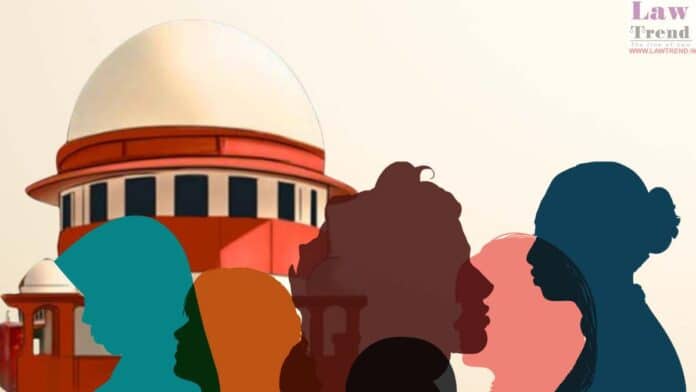The Supreme Court on Friday said it would be “very difficult” for it to strike down a part of the women’s reservation law that says it will come into effect after the Census.
A bench of Justices Sanjiv Khanna and S V N Bhatti, which refused to issue a notice on a plea moved by Congress leader Jaya Thakur, that has sought immediate implementation of the 128th Constitution (Amendment) Bill, referred to as the Nari Shakti Vandan Adhiniyam, which seeks to reserve one-third of the seats in the Lok Sabha and state assemblies for women, before next year’s general election.
The bench said there is a petition pending before the top court on the issue and it will take up Thakur’s plea along with that on November 22.

“This is a step taken, which is a very good step,” the bench said, as it refused to accept the argument of senior advocate Vikas Singh, who appeared in the court on behalf of Thakur.
The lawyer had said it is understandable that for the grant of reservation to backward classes, a census is required for data collection but wondered where does the question of a census arise in the case of women’s reservation.
Singh said the part of the law that says it will be implemented after the Census is arbitrary and must be struck down.
The bench said “it will be very difficult for the court to do that”.
“We have understood your argument. You are saying the census is not required (for women’s reservation). But there are a whole lot of issues. Seats will have to be first reserved and other things…,” it said.
Singh then asked for a notice to be issued and that the plea be listed with the other matter.
The court said it is not dismissing the plea but also not issuing a notice and only tagging it with the pending matter.
On September 21, a watershed bill to reserve one-third of the seats in the Lok Sabha and state assemblies for women received the parliamentary nod, as the Rajya Sabha voted unanimously in its favour.
Unlike the Lok Sabha, where two of the 456 MPs present in the House had voted against the Nari Shakti Vandan Adhiniyam, all the 214 lawmakers present in the Rajya Sabha had voted in its favour.
The 128th Constitution (Amendment) Bill will now require the approval of a majority of the state assemblies. It will be implemented after a delimitation exercise to redraw parliamentary and Assembly constituencies on the basis of a census that the government has said will be commissioned next year.
Also Read
The bill was passed after several amendments, including those for giving reservation to the Other Backward Classes (OBC) within the 33 per cent quota were rejected. The reservation for women in the Lok Sabha and state assemblies will be both horizontal and vertical, applying to the SC-ST categories.
Women constitute nearly half of the country’s 95 crore registered voters but comprise only 15 per cent of lawmakers in Parliament and 10 per cent in the state assemblies.
The 33 per cent reservation for women will not apply to the Upper House of Parliament and state legislative councils.
On September 29, President Droupadi Murmu gave her assent to the bill.







